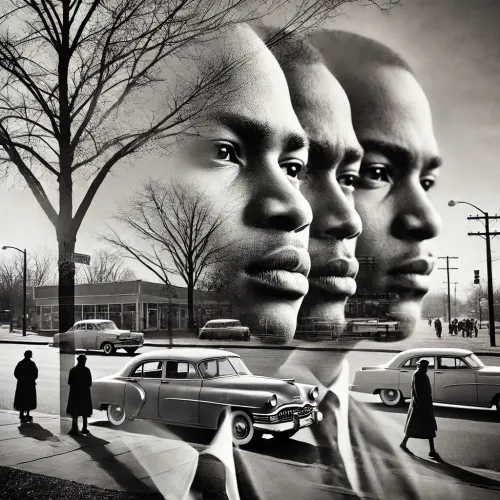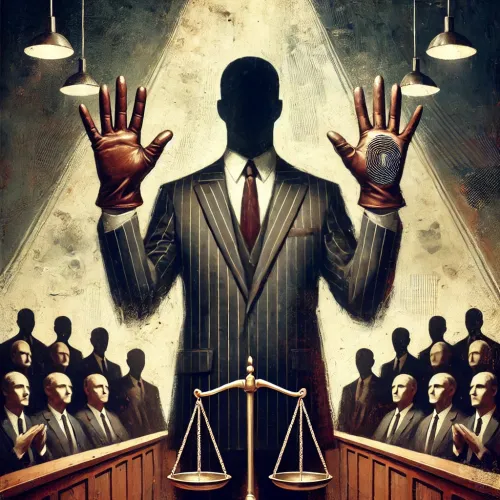Grassroots movements have historically been the driving force behind societal change, challenging entrenched systems and advocating for justice. Among these movements, those promoting jury nullification play a unique and critical role, empowering citizens to resist enforcing unjust laws. Yet, these movements face significant obstacles from legal institutions, political resistance, and public misinformation, all of which threaten their ability to educate jurors about their full rights and responsibilities.
Jury nullification, the practice of acquitting a defendant despite evidence of guilt because the law itself is deemed unjust, has a storied history in advancing justice. From colonial defiance of British sedition laws to resistance against the Fugitive Slave Act and Prohibition, nullification has served as a powerful tool for societal progress. However, modern grassroots efforts to revive awareness of this right face systemic suppression.
One of the primary challenges grassroots movements encounter is the deliberate silencing of nullification advocacy. Organizations like the Fully Informed Jury Association (FIJA) work tirelessly to educate the public about jury rights, distributing informational pamphlets and holding awareness campaigns. Yet, their efforts often attract legal retaliation. Activists have been arrested and charged with jury tampering for handing out educational materials near courthouses, even when their actions do not target specific cases. These prosecutions create a chilling effect, discouraging others from participating in similar advocacy.
Judicial practices further stifle grassroots efforts by actively suppressing discussion of nullification in courtrooms. Judges routinely instruct jurors to follow the law as given, omitting any mention of their right to judge the law itself. In some cases, judges explicitly warn jurors against considering the morality or fairness of a law, framing nullification as illegitimate or rogue. These instructions not only misrepresent the jury’s role but also perpetuate public ignorance about nullification, undermining the efforts of grassroots movements to promote informed juries.
Prosecutors, too, play a role in suppressing nullification. During jury selection, they often exclude potential jurors who express moral concerns about specific laws, ensuring that only those likely to comply with legal statutes are empaneled. This tactic, combined with charge stacking and plea bargaining, minimizes the likelihood of nullification by diverting cases away from juries altogether. Grassroots movements advocating for juror empowerment must contend with these systemic barriers, which prioritize control over fairness.
Another significant obstacle is the public perception of nullification. Critics argue that nullification undermines the rule of law, creating inconsistent and unpredictable verdicts. Grassroots advocates must combat this narrative, emphasizing nullification’s historical importance and its role as a democratic safeguard. By highlighting cases where nullification advanced justice—such as acquittals under the Fugitive Slave Act—advocates can challenge the misconception that it leads to anarchy. Instead, they can demonstrate that nullification is a tool for ensuring that laws align with societal values and moral principles.
Despite these challenges, grassroots movements have made important strides in raising awareness about jury nullification. Educational campaigns have reached thousands of citizens, empowering them to question the fairness of laws and their application. Activists have drawn attention to the overreach of mandatory minimum sentencing, drug laws, and other statutes that disproportionately harm marginalized communities. These efforts have sparked important conversations about the role of juries in addressing systemic injustices.
However, the obstacles grassroots movements face reflect a broader resistance to empowering jurors as independent arbiters of justice. Legal institutions often prioritize conformity and efficiency, viewing nullification as a threat to their authority. This resistance underscores the need for continued advocacy to protect juror independence and uphold the principles of democracy.
To overcome these obstacles, grassroots movements must employ a multi-faceted approach. First, protecting free speech is essential. Activists should challenge laws that criminalize the distribution of educational materials, ensuring that public discourse about jury nullification is not stifled. Legal reforms are also necessary to address the exclusion of independent thinkers from juries and to limit prosecutorial tactics that sideline jurors.
Second, fostering a culture of juror education is critical. Grassroots movements should collaborate with civic organizations, educators, and legal experts to incorporate information about jury rights into public discourse. By empowering citizens with knowledge about nullification, these movements can counteract systemic suppression and inspire jurors to act as a conscience for the community.
Finally, grassroots advocates must engage in broader conversations about the purpose of the justice system. By emphasizing fairness and accountability over rigid enforcement of laws, they can shift the narrative around nullification, reframing it as a legitimate and necessary component of a democratic society.
The obstacles faced by grassroots movements advocating for jury nullification are significant but not insurmountable. These movements play a vital role in challenging systemic injustice and ensuring that the legal system remains accountable to the people it serves. By resisting suppression and continuing their efforts to educate the public, grassroots advocates can preserve the jury’s independence and reaffirm its role as a defender of justice and democracy. In a society that values fairness, the right to nullify unjust laws is not a threat—it is an essential safeguard.




